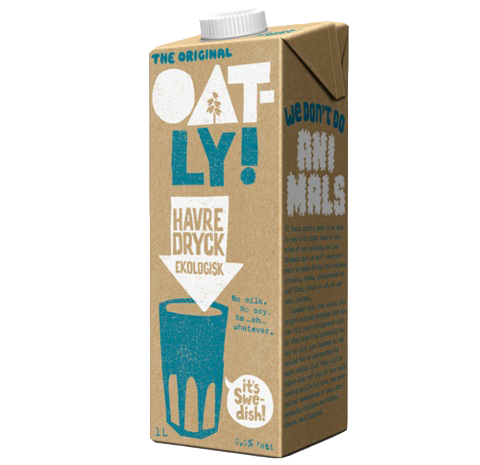Plant-Based Milks: What's the Best Option?
Almond, soy, coconut, oat (oh my!). There are so many milk options nowadays for your latte—but what’s the difference? With so many choices for a milk substitute, it’s important to know the healthiest alternatives for your morning coffee.
Almond Milk
Almond milk is made from two simple ingredients, almonds and water—if you like something a little sweeter, you can grab the vanilla option. In its purest form, it’s super simple and just 35 calories per serving.
This nut-based option is both gluten and lactose free, as well as low in fat. But if you’re looking for a milk alternative packed with protein, this is where the almond-based option is lacking with just about 1 gram per serving.
Soy Milk
This bean-based milk is high in protein. In just a single serving, soy milk provides 7 grams, the highest amount amongst plant-based milks. However, soy contains more than double the number of calories as almond milk with more than 100 calories per serving.
If you are looking for a non-dairy alternative for classic whole milk, soy is your best bet when it comes to nutrients. Soy milk and whole milk are equal when it comes to protein, calories, and even calcium. If you are lactose intolerant and looking for a substitute, then soy is an excellent choice. But, if you are worried about calories; this may not be the ideal option.
Coconut Milk
Coconut milk tends to be on the sweeter side. With that, this milk is higher in sugar than other options, containing 7 grams in one serving. Additionally, the coconut alternative is higher in fat and scarce in protein.
While this dairy substitute is lacking the nutrients other alternatives provide, it is low in calories. Coconut milk contains about 70 calories per serving, offering a distinct flavor profile and healthy benefits.
Oat Milk
Oat is the latest milk trend. Pressed from soaked oats, it contains 20 grams of whole grains, 1.5 grams of fat, and 4 grams of protein.
This frothy alternative tends to be on the thicker side and contains more fiber than the other non-dairy milks, but with high fiber comes more carbohydrates. In a single glass, there are 18 grams of carbs and 100 calories.
When it comes to what is healthiest—it depends. Considering calories and fat, Almond milk is the best alternative. But, for something high in protein and calcium, soy milk is the option.
Allergies, intolerances, and dietary restrictions all must be taken into account when choosing what plant-based milk to add to your daily diet.




